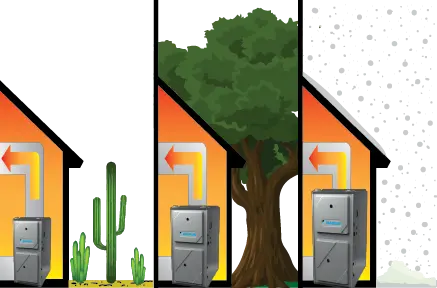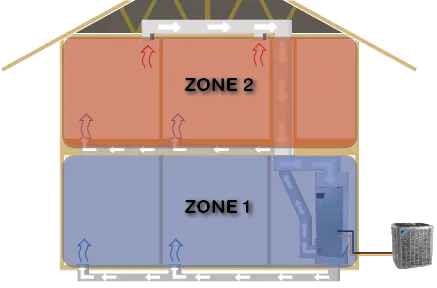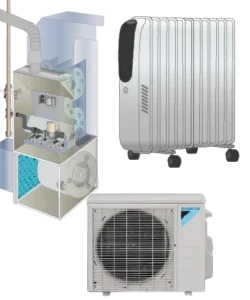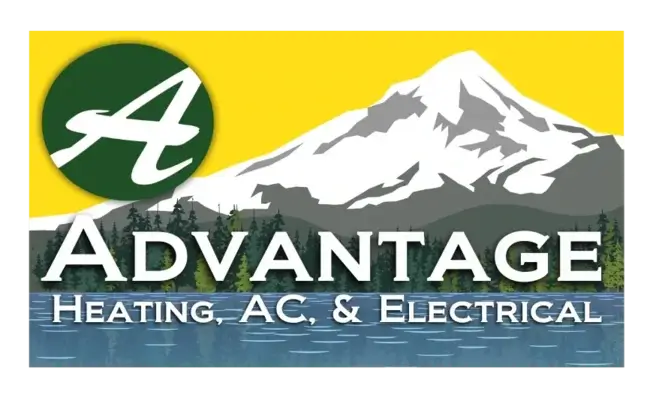What is the Best Way to Heat a House?
Did you know that home heating can make up around 40% of your annual utility spending if you live in the US? With that kind of money, you’d want to make sure you’re spending it on the absolute best way to heat a house. However, I have some bad news.
There is no best way.
If anyone tells you there is a one-size-fits-all, hands-down, best way to heat a house, they are trying to sell you the one item they stock. They’re hoping you are unaware of all the options available to you.
There are tons of factors that affect what heating solution is right for a person and their home:
- Climate
- Fuel Type
- Energy Efficiency
- Size and Layout of Home
- Desired Technology and Comfort
In this post, we’ll give a little explainer how each of these factors affects a home’s heating needs. After that, we’ll go over the three most common forms of home heating equipment and what their pros and cons are. At the end, we hope you can confidently say what home heating solution is best for you.
What Factors Determine the Best Way to Heat a House?
So we know what factors affect your home heating needs. Let’s discuss how they affect your home heating needs.
Climate
The weather that you experience will determine just how much heating you need. If you live in a region that gets down to sub-freezing temperatures in winter, then you will need more heating than someone who lives in an area where it only gets down to 50 degrees.
In Salem, Oregon, our weather is somewhere in the middle of the road. While we get heatwaves and snowstorms, we rarely have to live through them for more than a few days. That means that we need to have a flexible system, and don’t require as much heating power as someone living in the Northeast where they might spend 3 months trapped under snow.

Fuel Type
You will need to consider the type of fuel your HVAC system uses when making your purchase. There are reasons for and against each fuel type. How those reasons align with your values will inform your decision.
- Natural Gas: This is the most common form of fuel used for home heating in the United States. It’s also the most cost efficient utility, so you would spend less on your energy bill if your equipment uses natural gas.
- Electricity: This has become the second most common form of fuel for furnaces. As heat pumps become more common, electricity might become the dominant form of power for home heating. Electric furnaces are more expensive to operate than their natural gas counterparts, but heat pumps are the most efficient form of home heating on the market.
- Oil: Oil has fallen out of fashion as far as home heating goes. You can still find oil furnaces in remote areas with limited access to natural gas lines. Maintaining a supply of oil can be costly and it is the least environmentally friendly fuel source. Some countries have banned the use of oil heating equipment, making this type of equipment even more rare.
Efficiency
Energy efficiency is a major selling point for HVAC equipment and for good reason. The more efficient a piece of equipment is, the less money you’ll be spending on running it. More efficient equipment has less impact on the environment. However, more efficient equipment is broadly more expensive.
If you are operating within a budget for the initial installation, then you should know you might spend more money than necessary on your monthly utilities. You might not care about efficiency if your plan is to sell and move out of your current home soon.
If you want to keep your energy bill as low as possible, then be prepared to pay more upfront. You will save back this investment if you plan on staying in your current home for some time.
If you want to know exactly how much energy you’ll need to heat your home, you can request an energy audit of your home.
House Design
The size and layout of your home will determine how much power your HVAC system needs and what features you can benefit from.
Some things to consider:
- Does your home have multiple floors?
- Does your home have several large windows?
- Does your home have multiple rooms that you don’t use or that are hard to heat/cool?
- Does your home have large, open spaces or narrow passages?

Any of these factors could cause your furnace to heat your home unevenly, or can cause hot or cold spots because the heat coming from your vents gets trapped.
If you notice that your home has uneven heating or hot and cold spots then you might want to consider a smart system, or zoning.
Technology
Your preference for technology will also inform the heating options you should look at. If you love having the most up-to-date technology, then consider a smart HVAC system. The best way to heat your home is often the one you find most convenient. For some of us, this includes being able to program our furnace with our phone or Alexa.
However, not everyone is on board with smart technology. You can, of course, get a smart system, set the thermostat and forget about it. Alternatively, you can just get a high efficiency traditional system. Consider whether you prefer your technology connected when deciding how to heat your home.
The Three Most Common Forms of Home Heating
Here will explain some differences between the equipment you could purchase to heat your home. These pieces of equipment are:
- Furnace
- Heat Pump
- Radiant Heat
In a majority of American homes, you’ll find one of these three devices.

Furnace
Furnaces are the most common form of home heating. They can use oil, gas, or electricity as a fuel and can reach high levels of efficiency. They are still not as efficient as some of their alternatives, but they are also less expensive to install in a broad sense.
However, there is a heating method that uses a furnace that is 100% efficient and does not raise the cost of your electricity. If your home is already outfitted with solar panels, then you can use an electric furnace to turn that power into your home heating. Obviously, this method is not for everyone, but it is something we see from time to time.
Just upgrading your furnace won’t have as much benefit as taking a whole-home approach. This means also looking at your ducts, thermostat, and air conditioner to create a system that works well together and fits the exact needs of your home. This type of design method can save you around 30% on energy and reduce your home’s emissions.
Heat Pump
Broadly, heat pumps are the most efficient form of heating. They can be more expensive than a furnace, especially if you purchase a geothermal heat pump. However, geothermal heat pumps are one of the cleanest heating options on the market. A geothermal heat pump can produce 1/6th the CO2 of a natural gas furnace.
Heat pumps have the added benefit of also being able to cool your home. If you live in a temperate climate, it’s possible that one heat pump could provide the entirety of your home’s heating and cooling.
There are other forms of heat pumps available. We have a post where we explain the differences between each type. You can read that here.
Radiant Heat
Radiant heat is a category of heating products such as a boiler, or radiator that radiate heat into the room they are supposed to heat. While not as common as furnaces or heat pumps, they are still frequently used, especially in urban environments.
These systems typically generate heat by using electricity or natural gas to heat water or steam that runs through exposed pipes. Heat radiates from those pipes and is directed by metal fins to heat the room. Some natural gas boilers can reach 100% AFUE, making them a very efficient choice.
These systems are more expensive to install than a furnace but can earn back their cost in energy savings. However, they can be very costly to repair if something fails. The cost of potential repairs goes up if they have leaked water, which can damage your flooring, walls, and furniture.
What To Do Next?
Hopefully, you now know what you need to consider in order to determine what is the best way to heat your home. It’s a decision only you can make because you are the only person who knows all of your values.
Do you want to save money in the short term or save even more in the long term?
Do you want to have a system with a low environmental impact?
Do you want to have the most convenient technology in the market?
If you know where your values lie and are ready to get a professional opinion, contact your local HVAC professionals and ask them about what systems they offer that align with your goals.
Who Are Advantage Heating and Air Conditioning, LLC?
We are your local HVAC Experts out of Salem, Oregon. We hope that this post gave you the information you need to make a confident decision regarding what is the best way to heat a house. If you have other questions about HVAC systems, check out our other blogs. To learn more about who we are and how we can help you, visit our website and follow us on social media – we’re here when you need us!







